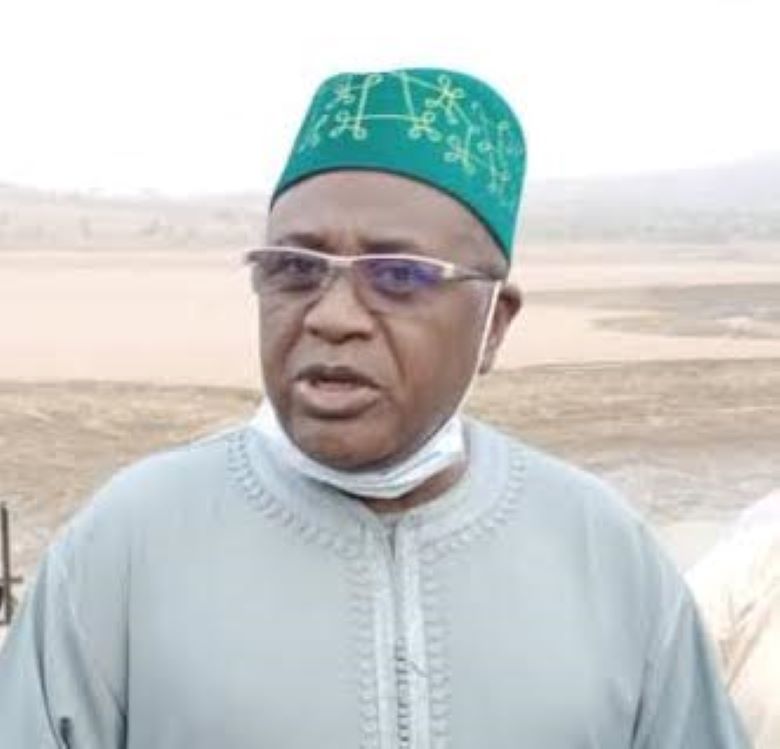By Mohammed Baba Busu
There is no gain in saying the Hydroelectric Power Producing Area Development Commission (HYPPADEC), under the leadership of its Managing Director, Alhaji Abubakar Sadiq-Yelwa, is making positive impacts on the lives of residents of host communities.
States currently under the jurisdiction of HYPPADEC include Niger, Kebbi, Benue, Plateau, Kogi and Kwara, however, Taraba, Gombe, Nasarawa and Kaduna have just been included because of the new provisions of the Electricity Act.
There are currently 10 states covered by the HYPPADEC, as the other four states of Taraba, Gombe, Nasarawa and Kaduna are automatic members in line with the provisions of the new electricity law.
Since its inauguration in December 2020 by former President Muhammadu Buhari, the commission has continued to consistently deliver on its mandate by improving the living standard of the host communities.
Indeed, the programmes and policies put in place by the commission have continued to cushion the ecological, socioeconomic and psychological effects of the dams on the communities that suffered a great deal of imbalance from the projects without commiserate reward to bridge the gap created in their lives over the years.
With the way and manner the commission is being managed, one can safely say that the vision of the founding fathers to fashion out interventionist measures to communities affected by the activities of hydroelectricity, especially in host communities is being achieved gradually.

Over the years, the 227 political wards under the commission suffered neglect due to a lack of proper attention by the Federal Government despite their huge contribution to the development of the country.
However, with the hope being given by the HYPPADEC management, it is safe to say that these communities that were hitherto neglected are beginning to enjoy a better life.
Considering that the major challenge of the majority of the affected communities is ecological in nature, the steps taken by the Alhaji Sadiq-Yelwa-led management will, no doubt, resolve and ameliorate the sufferings of the people of the areas in no distant time.
With the assessment of the basic needs and challenges of the 227 political wards that make up the HYPPADEC and the efforts to resolve them, there is hope that better days are here for the communities.
For example, the intervention of the HYPPADEC in the provision of education, housing, entrepreneurial programmes as well as transportation safety in all the six states under its operation has made the lives of residents more meaningful and rewarding.
Re-echoing the challenges of affected communities, the commission’s managing director said: “The ecological challenges they are faced with are enormous, which deprived them of the chances to improve even on their livelihoods, those are the major challenges the communities are really going through.”
Therefore, the step taken by the HYPPADEC to construct houses in new settlements for those displaced by flood in most riverine communities in Niger, Kogi, Kebbi and Kwara States, is indeed a welcome development.
This will permanently resolve once and for all the recurring challenges of displacement of the people every rainy season.
Findings indicate that over 250 units of houses have been constructed under the first phase of the resettlement scheme designed to protect the communities from the annual incidents of flood.
Muregi and Ketso communities have gotten 100 and 50 units of houses, respectively, in the first phase of the project while 50 units each would be constructed in Kogi and Kebbi States.
On the other hand, the target to provide skill acquisition training to over 30,000 residents of the affected states by the end of 2025, is considered by many as a commendable ambitious initiative.
The Youth Transformation programme introduced by the commission has over the years enabled youths in the 227 political wards to fend for themselves and become employers of labour.
‘’Some of the 5,000 beneficiaries were coming with their friends and relatives to get the training and these are not in the proposal, but it’s a good development.
‘’Those that benefitted from this skill training, we are planning that by next year, we will commence the next step because of the success recorded.
“By the end of 2025, we will have over 30,000 beneficiaries of our programme that are self-employed.
‘’We are also talking with financial institutions to support them with loans at zero interest rates or interest rates that the commission can even shoulder by itself,” Sadiq-Yelwa said.
The 5,000 youths were selected for yearly training from the six states covered by the commission, namely Kwara, Kogi, Kebbi, Benue, Plateau and Niger.
According to him, the training programmes are usually from three to six months depending on the type of skill chosen, adding that beneficiaries also enjoy a monthly stipend of N15,000 based on regular attendance, attention during training and seriousness exhibited.
With these laudable initiatives and programmes introduced by the HYPPADEC, it is important to call on residents of the affected states to give the commission maximum cooperation to enable it to have a conducive environment to roll out more programmes for the people.
It is also relevant to call on the youths and all beneficiaries of the empowerment programmes to take advantage of the initiatives and become entrepreneurs, who will in turn become employers.
This will not only reduce unemployment but will also boost the economy of the states that make up the HYPPADEC.
The federal government on the other hand must do everything possible to increase funding for the commission to enable it to continue to impact lives positively.

